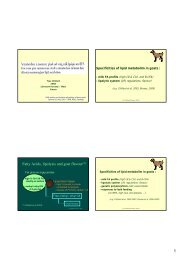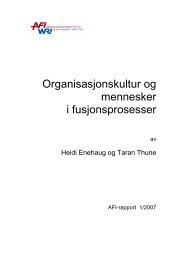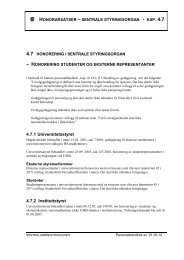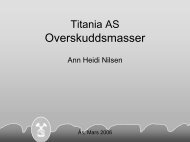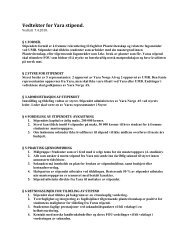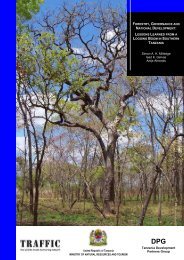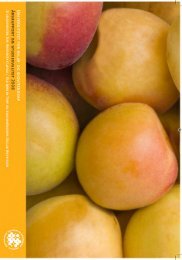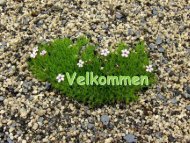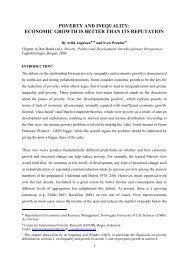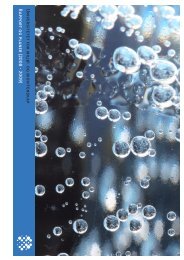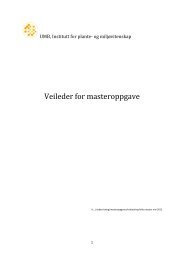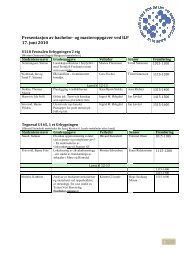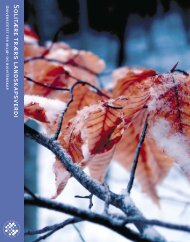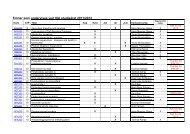Book with abstracts from the COST Action 0905 meeting in ... - UMB
Book with abstracts from the COST Action 0905 meeting in ... - UMB
Book with abstracts from the COST Action 0905 meeting in ... - UMB
Create successful ePaper yourself
Turn your PDF publications into a flip-book with our unique Google optimized e-Paper software.
THE IMPACT OF HEAVY METALS ON RED CLOVERS<br />
Audronė Mikalajūnė, Giedrė Jasulaitytė<br />
Department of Environmental Protection, Vilnius Gedim<strong>in</strong>as Technical University,<br />
Saulėtekio av. 11, LT – 10223, Vilnius – 40, Lithuania<br />
E-mail: Audrone.Mikalajune@vgtu.lt<br />
Keywords: heavy metals, red clovers Arimaičiai, soil pollution<br />
Red clovers Arimaičiai have been chosen <strong>in</strong> this work for decontam<strong>in</strong>at<strong>in</strong>g soil <strong>from</strong><br />
heavy metals. These plants were grown under artificial laboratory conditions <strong>in</strong> soil which was<br />
periodically contam<strong>in</strong>ated <strong>with</strong> heavy metals.<br />
Plastic pots of 7x25x11 cm <strong>with</strong> double bottoms were used for <strong>the</strong> experiment. 0.5 kg of<br />
uncontam<strong>in</strong>ated soil was put <strong>in</strong>to each of <strong>the</strong> pots. Each pot <strong>with</strong> soil conta<strong>in</strong>ed 10 g of seeds.<br />
Uncontam<strong>in</strong>ated soil was used for grow<strong>in</strong>g control plants. Seeds of plants were seeded to<br />
uncontam<strong>in</strong>ated soil and soil which was periodically contam<strong>in</strong>ated <strong>with</strong> heavy metals. S<strong>in</strong>ce<br />
humidity is <strong>the</strong> ma<strong>in</strong> factor condition<strong>in</strong>g <strong>the</strong> growth of plants and <strong>the</strong> necessary physiological<br />
processes, grass plants were watered every 3 days. Control plants were watered <strong>with</strong> 100 ml of<br />
ord<strong>in</strong>ary water while plants grown <strong>in</strong> <strong>the</strong> periodically contam<strong>in</strong>ated soil were watered <strong>with</strong><br />
100 ml of mixture of heavy metals. The ma<strong>in</strong>ta<strong>in</strong>ed temperature was 22-24 0 C and <strong>the</strong> light<strong>in</strong>g<br />
was natural. The experiment lasted six months.<br />
Table 1. Heavy metals concentration <strong>in</strong> <strong>the</strong> soil<br />
Cu mg/kg Cr mg/kg Zn mg/kg Pb mg/kg Mn mg/kg Ni mg/kg<br />
90 100 300 100 1200 75<br />
After permanent soil application <strong>with</strong> Cu, it was noticed that after six months Cu<br />
concentration <strong>in</strong> soil was 3 times smaller than <strong>in</strong> <strong>the</strong> beg<strong>in</strong>n<strong>in</strong>g of experiment, but <strong>in</strong> red<br />
clovers <strong>the</strong>re were 25 mg/kg of Cu. When Mn concentration <strong>in</strong> soil reached 1200 mg/kg, after<br />
VI month red clovers had absorbed 30 % of it <strong>from</strong> soil, so it was noticed that concentration <strong>in</strong><br />
plant was 355 mg/kg of Mn. When Ni concentration <strong>in</strong> soil reached 75 mg/kg it was noticed<br />
that after VI month red clovers absorbed 32 % of Ni <strong>from</strong> soil (24 mg/kg of Ni <strong>in</strong> red clovers<br />
Arimaičiai). When Cr concentration <strong>in</strong> soil reached 100 mg/kg after VI month red clovers<br />
sorbs 31 % of Cr (31 mg/kg <strong>in</strong> red clovers), and when Zn concentration <strong>in</strong> soil reached 300<br />
mg/kg red clovers sorbs 17 % of Zn <strong>from</strong> <strong>the</strong> pollution soil (51 mg/kg <strong>in</strong> plant). When Pb<br />
concentration <strong>in</strong> soil reached 100 mg/kg red clovers removed 23 % of Pb <strong>from</strong> <strong>the</strong> soil, so<br />
<strong>the</strong>re were 23 mg/kg of Pb <strong>in</strong> red clovers Arimaičiai.



